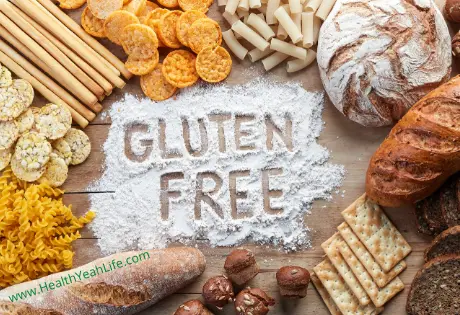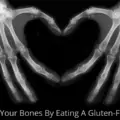A gluten-free diet is neither a food fad nor a weight loss diet. A gluten-free diet is therapeutic for people who have allergic or immune reactions to gluten. These reactions aren't trivial but severe and life-threatening reactions that can reduce their chances of living in good health.
The Big Deal about Gluten
A gluten-free diet is not an easy one, and there are lots of foods to give up, like bread, pasta cookies, cereal, condiments, food additives, the list goes on. We continuously check food labels for clarifications and ignore our cravings just to stay healthy. We do all this because of our immune responses to gluten.
Gluten is a group of proteins found in grains like wheat, barley, rye, and spelt. These proteins, which include glutenin and gliadin, convert the starch in grains into a glue-like constituency when they are dissolved in water. This adhesive property gives dough its elasticity, and its characteristic chewy texture when baked. Gluten is suitable for food companies and bread lovers but bad for people with gluten intolerance.
A Look Inside the Gut
Our gut consists of both the small intestine and the large intestine. The small intestine works with the stomach to break down complex food compounds into smaller molecules that are absorbed by the large intestine. To do this, the large intestine has tiny projections called villi that increase the surface area of the large intestine, making it efficient in absorbing nutrients (fatty acids, amino acids, glucose, vitamins, minerals ) along with water.
When you eat gluten foods, your stomach, and small intestine break them into proteins and glucose. In the large intestine, these proteins dissolve in water to form a glue-like constituency that lines its mucosa lining. People with gluten intolerance have antibodies that recognize these proteins as harmful antigens. In a bid to get rid of these perceived antigens, their immune systems release white blood cells that attack the proteins. Unfortunately, these white blood cells attack the gut too.
Gut Symptoms of gluten intolerance include:
Acute symptoms like diarrhea, vomiting, bloody stools, bloating, and abdominal pain.
Chronic symptoms like weight loss, tiredness, fatigue, anorexia, stunted growth and symptoms of anemia and vitamin deficiencies.
Non-Intestinal Manifestations of Gluten Intolerance
Apart from gut symptoms, there are skin and neurological manifestations of gluten intolerance. They include:
Gluten ataxia – a neurological manifestation of gluten intolerance.
Dermatitis herpetiformis – a skin manifestation of gluten intolerance
Baker's asthma – also known as wheat allergy, it is a respiratory allergy common in people who work with cereal grains.
Wheat dependent exercise-induced anaphylaxis, this is an urticaria like response to wheat that is characterized by rashes and swelling of lips.
Contact dermatitis – an allergic response of the skin that is triggered by physical contact with gluten foods.
There are bowel diseases that are made worse by gluten. They include inflammatory bowel diseases like celiac disease and some forms of colon cancer.
Benefits of a Gluten-Free Diet
Apart from reducing the incidence of allergic symptoms, a gluten-free diet can:
Reduce Blood Cholesterol:
Going gluten-free means you will have to compensate tour fiber intake by sourcing for more fruits and vegetables. Since vegetables are high in fiber, they improve gut motility and excretion of cholesterol from the gut.
Control Weight Gain:
Going gluten-free can control weight gain by:
● Reducing your intake of high caloric desserts like pizzas, cakes, and other processed meals.
● Increasing your chances of preparing your meals yourself.
● Increasing your intake of fresh whole foods, fruits, and vegetables.
● Reducing your use of food condiments, additives, and seasonings.
Reduce the Risk of Colon Cancer: For those with gluten intolerance and celiac disease, gluten-free diets not only reduce the occurrence of malabsorption syndromes, but it also reduces your chances of developing colon cancer in the future.
The Gluten-Free Diet Shopping List
Thankfully, the gluten-free diet has a wide range of food options that are tasty and nutritious. They include:
Legumes – beans, seeds, and nuts.
Fruits and vegetables
Potatoes
Eggs
Dairy products
Oils and vinegar
Seafood
Lean beef
Poultry
Gluten-free grains like – rice, sorghum, millet, quinoa, tapioca, amaranth, arrowroot, and buckwheat.
5 Tips to Make the Gluten-Free Diet Work for You:
Be Intentional
A primary requirement in making the gluten-free diet work is intentionality. When I was diagnosed with colon cancer, I made a decisive choice to stay healthy by avoiding gut symptoms as much as I could.
To do this, I gathered information on the various gluten-free foods available for me. I also gathered information on gluten foods to avoid. Apart from wheat, rye, barley and spelt, other gluten-containing grains include:
Couscous
Durum
Graham flour
Semolina
Faro
Einkorn
Emmer
Farina
Fu (common in Asian foods)
Kamut
Matzo
Bulgur
Oats – although oats don't contain gluten, they are often processed in facilities that process gluten-containing grains.
Seitan
Triticale and Mir
Gluten can also be an ingredient in
Barley malt
Veggie burgers
Malt vinegar
Chicken broth
Some salad dressings
Soy sauce
seasonings and spice mixes
Soba noodles
Condiments
You should check food labels to be sure condiments are gluten-free. If you aren't sure, the source for trusted brands that are gluten-free and stick to them.
Get Information
Self-education is paramount. When you are informed, you arm yourself with the will to stick to lifestyle changes. The more you know, the less you struggle with sticking through. It's that simple. Web content, books, and support groups are great places to source for information. Another good tip is to subscribe to my email newsletters to get useful information.
You can get information on available gluten-free food sources and sumptuous recipes. You can also gather information on symptoms of gluten intolerance. This information is not only useful to you, but also to other people with gluten intolerance.
Be Consistent
Anything worth doing is worth doing well. And let's be honest, good habits take time. On the bright side, the results are always worth it. Unlike food fads that come and go, a gluten-free diet is here to stay. You will have to make peace with the fact that you are in it for the long haul.
An excellent way to prime yourself for consistency is to keep a food journal. You can also plan your meals ahead of time, whether daily, weekly, or monthly meal plans.
Be Patient With Yourself
At first, it will be hard making and sticking to your lifestyle changes. You will have to say no to gluten bread, biscuits, pasta, and rice dishes. But don't be discouraged. Be patient. And when you fail, because the chances are that you will, forgive yourself and reinforce your decision to take care of your health.
Join A Support Group
Support groups aren't overhyped or overrated. They work. When you align with people who have the same challenges as you, you develop mental strength. You can learn from the experiences of others, gather new tips, exchange recipes, and success stories.
Knowledge is Power
Health Yeah Life is a community of people who are genuinely interested in helping one another. We believe that the key to figuring out why we feel the way that we feel is to take a more significant look at what is going on inside and around us, and then ask questions!
We can't wait to hear from you. Send us a message, and we will get back to you as soon as we can.





1 thought on “What harm can gluten do?”
Comments are closed.